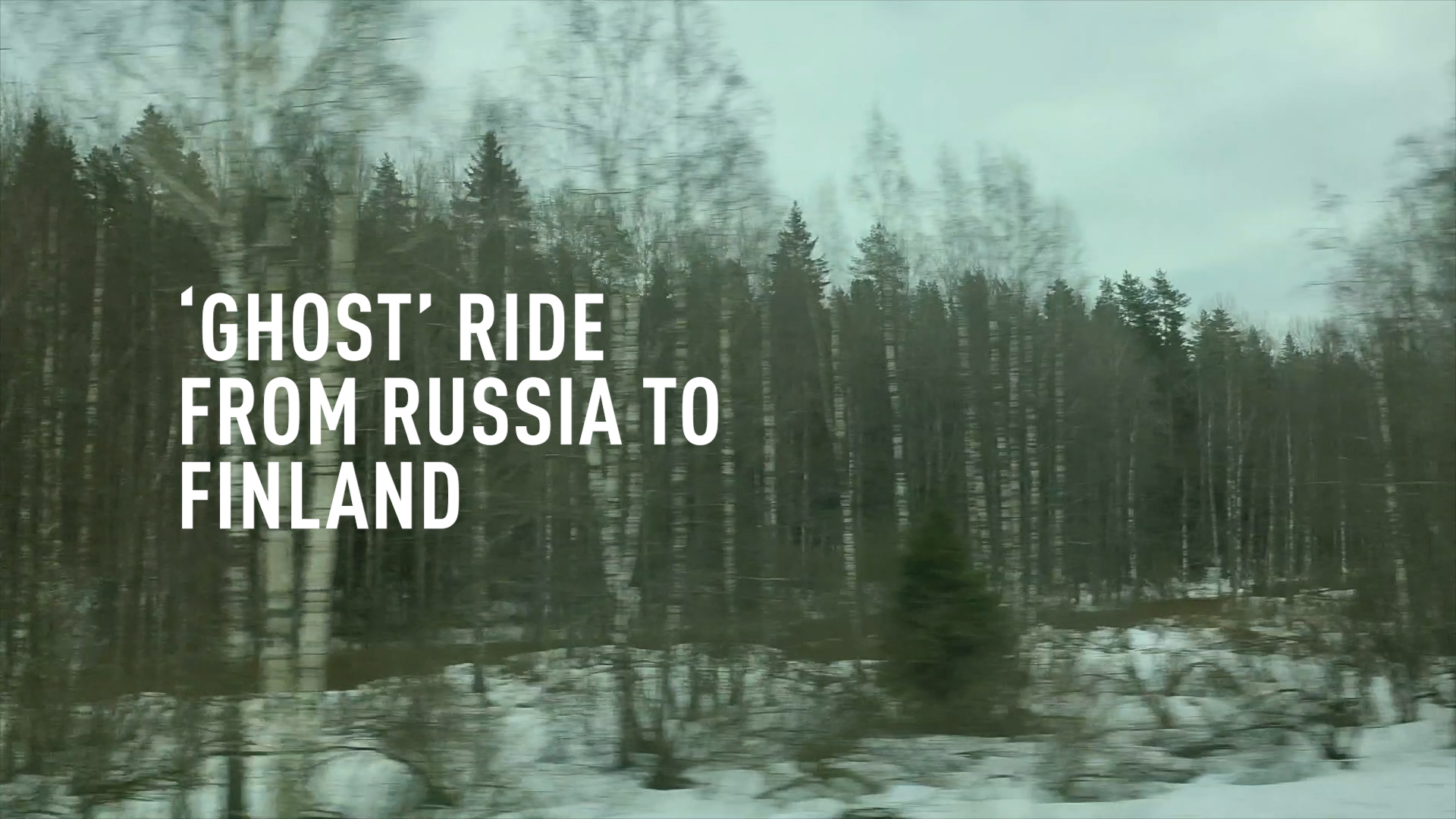07:23

Ever since February 24 last year, getting to and from Russia has been increasingly difficult for a foreign reporter.
As all but one European airline cancelled their flights to Russia, and Russian airlines were barred from entering EU airspace, the only mode of direct travel between Russia and the rest of Europe was Air Serbia's direct flights from Belgrade to Moscow or St. Petersburg.
But the increased number of passengers drove prices through the roof, and finding an available seat was and is almost impossible, sometimes weeks in advance.
READ MORE
Animation: Restoration of Notre Dame
Will tech end English language's domination?
Why Chinese is so different to European languages
Traveling via Istanbul or Dubai is an option, but also a difficult and costly one.

It was almost empty at the Finnish-Russian border. /Aljosa Milenkovic/CGTN
It was almost empty at the Finnish-Russian border. /Aljosa Milenkovic/CGTN
This time, my return from Moscow to Belgrade saw me face the same issues. So, after a similar experience from the last autumn, I decided to go home through Finland.
I first took a high-speed Sapsan train to St. Petersburg, aiming to find a bus that would take me to Finland. And while I was traveling 230 km per hour on a Sapsan, my Russian colleague in Moscow tried to find me a bus ride to the Finnish town of Imatra. But the attempts were futile, as all the seats were already taken.
We had to opt for a last resort: contacting small companies from St. Petersburg that employ a driver with an EU visa to take me to my destination. At the end, only one company was able and keen to do that.
But their conditions were eye-watering. They requested that we lease the entire ten-seater van for a hefty price tag, although they did include in their offer to take me around the Finnish town of Imatra for my scheduled news-gathering. As it was the only offer we got and it came with a 'take it or leave it' clause, we had little other option but to accept it.
Plenty of room aboard
Early on Saturday morning, the driver was parked in front of my hotel behind the wheel of a huge VW van. We headed towards the Russian town of Vyborg.
Most of the road was a six-lane highway, built to connect St. Petersburg with the Finnish capital, Helsinki. However, due to the sanctions, the traffic between the two countries has almost completely stopped. But the Russians continue to build this highway in the parts where it is still a two-lane road.
On the Russian side of the border, a very thorough check was performed, but professionally and without too much delay. There were no Russian cars heading to Finland at the border this morning. Only our van and another one with several Russians inside, hoping to reach Finland.
On the Finnish side of the border, we met with Finnish Border Guard Master Sergeant Kari Kemppinen, who told us that the traffic at the Imatra border crossing is a shadow of its pre-pandemic levels. Back then, around 13,000 Russians went through this border crossing every day. Most of them were headed for shopping in Imatra's numerous supermarkets and shops specially built for them. Now, there are only around 200 people a day who cross this border, most of them Finns heading to Russia to purchase cheap fuel.
In the distance, on the Finnish side of the border, we saw an excavator clearing the forest and preparing the ground for building a border wall between the two countries. Finns are investing over $400 million into a 200 kilometer-long, 3 meter-tall border fence with Russia that should be finished by 2026. They want to prevent a possible influx of illegal migrants like the one that happened here back in 2015. Finland says that Russia might use this memory to pressure it after the Helsinki government's application to join NATO.
At the end of my travel to the Imatra train station, from where I was to take a train to Helsinki, we passed several supermarkets built for the Russian shoppers. All of those have been closed for some time, and a couple display large signs advertising the buildings for sale.
In Imatra's city center, around one third of the shops are closed because Russian shoppers can't come anymore. It's caused a harsh economic wind for local shopkeepers, with little sign of improvement any time soon.
Subscribe to Storyboard: A weekly newsletter bringing you the best of CGTN every Friday